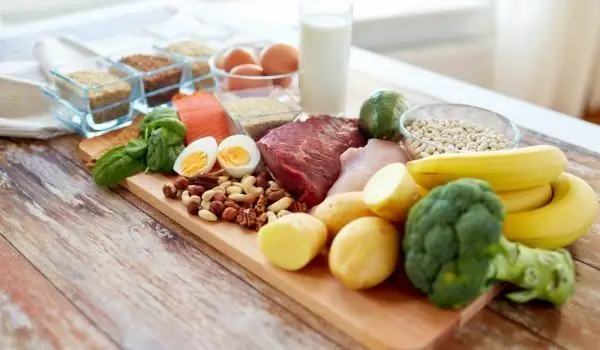2025 Author: Jasmine Walkman | [email protected]. Last modified: 2025-01-23 10:18
You may find it difficult to maintain a healthy diet against the background of hectic daily life and lifestyle. However, the symptoms of Crohn's disease will make you seriously rethink your eating habits and develop a diet rich in some important nutrients. If you eat right and avoid foods that exacerbate the symptoms of Crohn's disease, you can take an active role in managing your condition as well as maintaining optimal weight and overall health.
Everyone needs a proper diet for good health. Crohn's disease can lead to decreased appetite, poor absorption of vitamins and minerals, diarrhea and more. Although there are no specific foods and diets that prevent or cure Crohn's disease, proper nutrition is an essential part of medical treatment.
Most digestion takes place in the small intestine, which is located just below the stomach. Food is broken down, absorbed through the walls of the intestine and transported to other parts of the body through the blood. In Crohn's disease, the small intestine becomes inflamed. This process reduces their ability to break down food in them. Unabsorbed nutrients pass into the colon and are excreted from the body. This is one of the reasons why people with Crohn's disease often feel tired due to a lack of important micronutrients. Inflammation can also affect water absorption, which often leads to diarrhea and dehydration.
In Crohn's disease, your diet should be rich in protein and vitamins, especially vitamins A, C, B-12 and folic acid. Add foods containing calcium, potassium and iron. To make sure you get all the nutrients you need, your diet should include a variety of four main groups - meat and meat substitutes, dairy products, grains, fruits and vegetables. Spicy and high-fiber foods can cause mild abdominal discomfort. Also limit alcohol, which can increase the symptoms of the disease. Talk to your gastroenterologist or nutritionist about developing a healthy diet appropriate for Crohn's disease.

Here are some foods that are recommended to include in your diet - liver, eggs, dairy products, dark green leafy vegetables (spinach, peas), rich in vitamin C fruits - citrus fruits, bananas, strawberries. Folic acid can be obtained from the liver, beets, corn, legumes, green leafy vegetables and more. Eat fish, red meat, poultry to provide the necessary supplies of iron and vitamin B-12.
Eat regularly. Crohn's disease can lead to loss of appetite and poorer absorption of nutrients, so you need to take large amounts of vitamins, proteins and calories.
Don't give in to the urge to try your favorite spicy foods. They will only worsen the symptoms and discomfort.
Do not drink or at least limit alcohol. It exacerbates the symptoms of the disease. Limit cocktails, wine and beer in particular.
Keep in mind that diet will not cure the disease, nor will it prevent its development. The choice of food can worsen or alleviate the symptoms, so it is good for you to follow a certain diet that will make you feel good throughout the day, regardless of the presence of the disease.
Recommended:
Diet Drinks And Heart Disease

Many publications in recent years on diet drinks, heart disease and the relationship between them have led many to wonder if it is beneficial to replace normal drinks with diet (light). The study One of the studies on the topic is related to the observation of 6000 healthy people and a comparison between their health condition at the beginning and after four years.
Is There A Link Between Diet, Obesity And Alzheimer's Disease?

Alzheimer's disease is more common in the elderly, but it is not a normal part of aging. As the world's population increases, the rate of Alzheimer's is expected to increase from 36 million to 115 million by 2050. The final cause of Alzheimer's disease is still unknown.
WHO: A Balanced Diet Can Stop Heart Disease And Cancer

A varied and balanced diet is the basis for a healthy life. Improper nutrition in addition to the mental state is one of the main risk factors for the occurrence of many chronic diseases. According to the World Health Organization, about 1/3 of cardiovascular disease and cancer can be avoided through a balanced and healthy diet.
A Vegetarian Diet Leads To A Higher Risk Of Heart Disease

A completely vegetarian diet is often cited as a much better and healthier diet than one that includes a combined consumption of meat and vegetables. However, these beliefs have been questioned by a number of cardiologists from various institutes around the world.
Diet For Liver Disease

People with liver disease should follow a special diet because the way of eating directly affects the condition of the liver. First of all, alcohol consumption should be stopped. It dehydrates the body and destroys all the beneficial effects on the liver, acquired in the process of treatment and diet.

